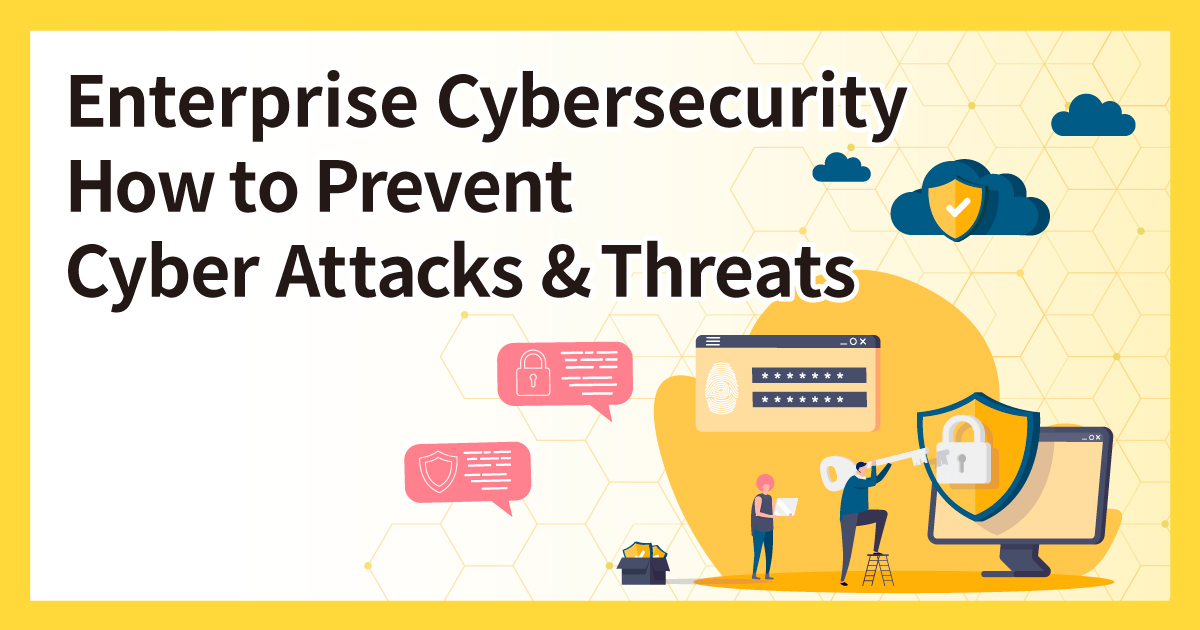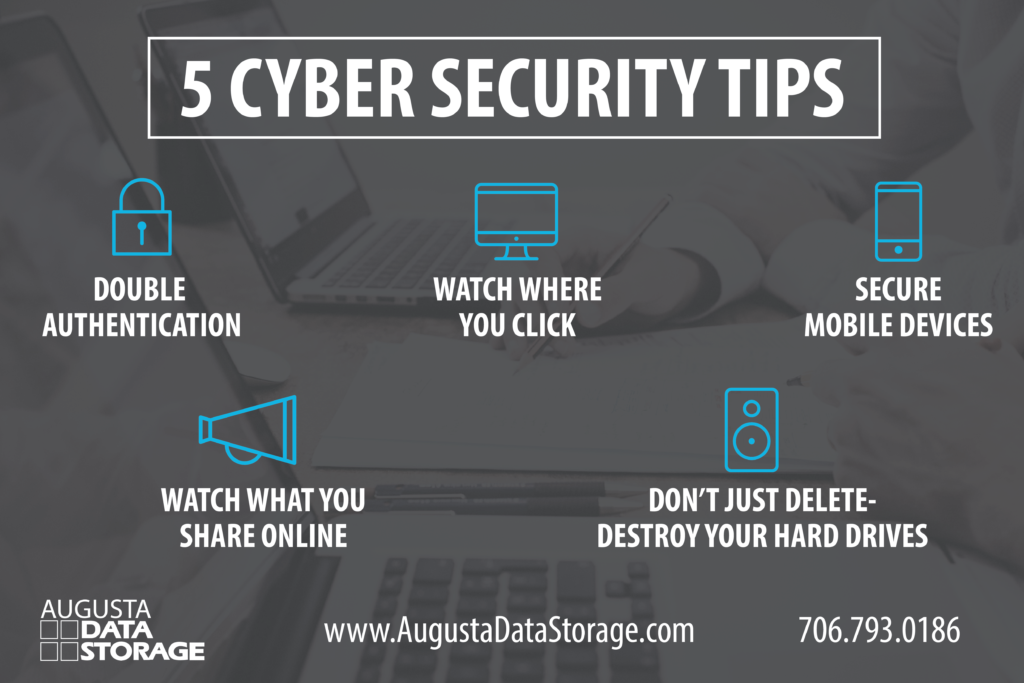Online security threats are a serious concern today. Everyone should know how to stay safe online.
Cybercriminals are always searching for new victims. From individuals to large businesses, no one is entirely safe. This is why online security should be a top priority. This blog post will explore essential tips to protect you from online security threats. Whether it’s protecting your personal data or securing your devices, these strategies will help you stay one step ahead of hackers. With the proper knowledge and tools, like NordVPN, you can ensure your online activities remain private and secure. Learn more about how NordVPN can help protect you from these threats by visiting NordVPN. Stay tuned to discover effective ways to prevent online security threats and secure your digital life.
Introduction To Online Security Threats
In today’s digital age, online security threats are a significant concern. Cybercriminals constantly find new ways to exploit vulnerabilities and steal sensitive information. Understanding these threats is crucial to protect yourself and your data.
Understanding The Importance Of Online Security
Online security is essential for protecting personal and financial information. It helps prevent unauthorized access to your devices and accounts. Strong online security measures can protect against identity theft and financial fraud.
Using tools like NordVPN can enhance your security. NordVPN offers advanced encryption, ensuring your data remains private and secure. It also has a strict no-log policy, meaning your online activities are not recorded.
Common Types Of Online Security Threats
There are several common types of online security threats:
Phishing: Fraudulent attempts to obtain sensitive information by disguising it as a trustworthy entity.
Malware: Malicious software designed to harm your computer or steal data.
Ransomware: Malware that locks your files and demands a ransom to unlock them.
Spyware: Software that secretly monitors your activities and gathers information without your consent.
Adware: Software that automatically displays or downloads advertising material.
By understanding these threats, you can take proactive steps to protect yourself. A VPN like NordVPN can help by providing threat protection against malware, trackers, and ads. NordVPN’s high-speed connections ensure you stay secure without compromising on performance.

Credit: learningbox.online
Key Features Of Effective Online Security Practices
In today’s digital age, ensuring online security is paramount. Understanding and implementing key practices can significantly reduce the risk of cyber threats. Here are essential features of adequate online security:
Using Strong And Unique Passwords
Creating strong and unique passwords for each of your accounts is crucial. A robust password includes:
At least 12 characters
A mix of uppercase and lowercase letters
Numbers and special symbols
Using a password manager like WordPress can help manage and generate secure passwords effortlessly.
Two-factor Authentication
Two-factor authentication (2FA) adds an extra layer of security. It requires not only a password but also a second form of verification:
Something you know (password)
Something you have (phone, email)
Implementing 2FA on all accounts significantly enhances security.
Regular Software Updates
Keeping your software up to date is essential. Regular updates fix vulnerabilities and improve security:
Operating systems
Browsers
Applications
Enable automatic updates to ensure you’re protected against the latest threats.
Secure wi-fi Connections
Always use a secure wi-fi connection. Public wi-fi networks are often unsecured:
Use a VPN like NordVPN to encrypt your connection
Ensure your home wi-fi is secured with a strong password
For enhanced security, NordVPN offers advanced features like Double VPN and Onion Over VPN.
Implementing these practices can significantly enhance your online security, protecting your data from threats.
Top Tips For Enhancing Your Online Security
In today’s digital age, protecting your online presence is crucial. With numerous threats lurking on the internet, it’s essential to take steps to secure your information. Here are some top tips to help you enhance your online security.
Recognizing Phishing Attacks
Phishing attacks are deceptive attempts to steal your personal information. These attacks often come in emails or messages that appear to be from legitimate sources.
Check the sender’s email address for suspicious domains.
Look for grammatical errors and generic greetings in messages.
Do not click on links or download attachments from unknown sources.
Use a spam filter to block potential phishing emails.
Avoiding Public wi-fi for Sensitive Transactions
Public wi-fi networks are convenient but can be risky. Avoid using them for sensitive transactions like online banking or shopping.
Use a VPN, such as NordVPN, to secure your connection.
Disable automatic connection to public wi-fi networks.
Use your mobile data for secure transactions if a VPN is unavailable.
Backing Up Important Data
Regularly backing up your data can save you from data loss due to cyberattacks or hardware failures.
Use cloud storage services for automatic backups.
Keep an external hard drive for offline backups.
Ensure your backups are encrypted for added security.
Using Antivirus And Anti-malware Software
Antivirus and anti-malware software are essential for protecting your devices from malicious attacks.
Install reliable software and keep it updated.
Schedule regular scans to detect threats early.
Enable real-time protection features.
Following these tips can significantly enhance your online security and protect your personal information from potential threats.
Pricing And Affordability Of Security Tools
Securing your online presence doesn’t have to be expensive. Understanding the costs and benefits of various security tools can help you make an informed decision. This section explores the pricing and affordability of essential security tools like password managers and antivirus software, and compares free versus paid options.
Cost Of Password Managers
Using a password manager enhances online security by creating and storing strong, unique passwords for each account. The cost of password managers can vary significantly:
Service | Monthly Cost | Annual Cost | Features |
|---|---|---|---|
NordPass | SGD 3.99 | SGD 47.88 | Unlimited passwords, secure notes, and a data breach scanner |
LastPass | SGD 4.00 | SGD 48.00 | Unlimited passwords, secure notes, and multi-factor authentication |
Dashlane | SGD 5.00 | SGD 60.00 | VPN, dark web monitoring, secure file storage |
Pricing For Antivirus Software
Antivirus software protects your devices from malware, viruses, and other online threats. The pricing for antivirus software typically depends on the features offered:
Basic Plans: Start at SGD 20 per year. Includes real-time protection and malware scans.
Premium Plans: Range from SGD 50 to SGD 100 per year. Offers advanced features like VPN, parental controls, and firewall protection.
Comprehensive Suites: Cost around SGD 150 per year. Includes all features of premium plans plus additional tools like identity theft protection and secure online storage.
Free Vs Paid Security Tools
Choosing between free and paid security tools involves evaluating the protection and features you need. While free tools offer basic protection, paid versions provide comprehensive security:
Free Tools: Basic antivirus protection, limited password storage, and essential malware detection. Suitable for casual users.
Paid Tools: Enhanced security features such as advanced encryption, no-log policies, and multi-device support. Ideal for privacy-conscious users and professionals.
For example, NordVPN offers a comprehensive security suite that includes NordPass and NordLocker, providing a complete online security and privacy solution. With a discounted SGD 4.49/month rate, it offers high-speed connections, advanced encryption, and access to a global server network, making it an affordable choice for robust online protection.
Understanding the pricing and affordability of security tools helps you invest in the right tools to protect your digital life effectively.
Pros And Cons Of Popular Security Measures
To safeguard your online presence, it is essential to understand the benefits and limitations of various security measures. This section will explore the pros and cons of some popular security tools, including password managers, two-factor authentication, and VPNs.
Pros And Cons Of Password Managers
Password managers have become a crucial tool for managing and securing your passwords. Here are some advantages and disadvantages:
Pros | Cons |
|---|---|
Convenience: Automatically generate and store strong passwords. | Single Point of Failure: If hacked, all passwords are compromised. |
Security: Encrypted storage of passwords protects against breaches. | Cost: Some password managers require a subscription fee. |
Access: Easily access passwords across multiple devices. | Complexity: Initial setup may be confusing for non-tech users. |
Advantages And Disadvantages Of Two-factor Authentication
Two-factor authentication (2FA) adds an extra layer of security by requiring a second form of verification. Here are its pros and cons:
Advantages
Enhanced Security: Provides an additional layer of protection.
Reduced Risk: Even if passwords are compromised, accounts remain secure.
Variety: Different methods available (SMS, email, app-based).
Disadvantages
Inconvenience: Extra steps can be time-consuming.
Dependence: Requires access to a second device.
Potential Issues: Problems with receiving codes due to connectivity.
Benefits And Drawbacks Of Using Vpns
Virtual Private Networks (VPNs) such as NordVPN provide online privacy and security by encrypting your internet connection. Here are the benefits and drawbacks:
Benefits | Drawbacks |
|---|---|
Privacy: Hides your IP address and location. | Speed: Can slow down the internet connection. |
Security: Protects data on public Wi-Fi. | Cost: High-quality VPNs often require a subscription. |
Access: Bypasses geo-restrictions for streaming content. | Complexity: Setup may be tricky for beginners. |
Multi-Device Support: Covers multiple devices with one account. | Trust: Relies on the VPN provider’s no-logs policy. |
For example, NordVPN offers features like Double VPN and Onion Over VPN, ensuring advanced security. It also includes Threat Protection to block ads, trackers, and malware. It has a strict no-logs policy to maintain privacy.

Credit: www.mediavalet.com
Specific Recommendations For Different Users
Preventing online security threats requires customized strategies for different user groups. This section provides tailored recommendations for individuals, small businesses, and large enterprises. Following these specific guidelines can help each group effectively enhance its online security posture.
Best Practices For Individuals
Individuals can significantly improve their online security by adopting these best practices:
Use Strong Passwords: Create unique passwords using letters, numbers, and symbols.
Enable Two-Factor Authentication (2FA): Add an extra layer of security to your accounts.
Install Security Software: Use antivirus and anti-malware tools to protect your devices.
Regular Updates: Keep your operating system and applications up to date.
Secure wi-fi Networks: Use strong passwords and WPA3 encryption for your home wi-fi.
NordVPN: Use NordVPN to encrypt your internet connection and protect your privacy.
Top Security Tips For Small Businesses
Small businesses face unique security challenges. Implement these tips to safeguard your operations:
Employee Training: Educate staff about phishing scams and safe internet practices.
Secure Business Data: Use encryption tools like NordLocker to protect sensitive information.
Access Controls: Limit access to critical systems and data based on employee roles.
Regular Backups: Regularly back up your data to prevent data loss.
Network Security: Set up a secure network with firewalls and VPNs like NordVPN.
Device Management: Implement policies for managing and securing company devices.
Essential Security Measures For Large Enterprises
Large enterprises need robust security measures to protect their extensive operations:
Security Measure | Description |
|---|---|
Advanced Threat Protection | Deploy solutions like NordVPN’s Threat Protection to block malware, ads, and trackers. |
Comprehensive Encryption | Use AES-256 encryption for all data transmissions and storage. |
Multi-Factor Authentication (MFA) | Implement MFA for all critical systems to enhance security. |
Security Audits | Conduct regular security audits to identify and address vulnerabilities. |
Incident Response Plan | Develop and maintain an incident response plan to handle security breaches. |
Global Server Network | Use a VPN service like NordVPN to ensure secure and stable connections worldwide. |

Credit: www.augustadatastorage.com
Frequently Asked Questions
How Can You Protect Against Online Threats?
Use strong passwords and update them regularly. Enable two-factor authentication. Install antivirus software. Avoid clicking suspicious links. Keep software updated.
What Are The 3 Main Ways To Prevent Security Threats?
To prevent security threats, use strong passwords, update software, and enable multi-factor authentication.
What Are The Solutions For Cyber Security Threats?
Use strong passwords, enable multi-factor authentication, update software regularly, use firewalls, and conduct employee training.
What Are Four Ways To Prevent Online Threats?
Use strong passwords and update them regularly. Enable two-factor authentication. Keep software and systems updated. Avoid clicking on suspicious links.
Conclusion
Staying safe online requires constant vigilance and the right tools. Regularly update your software, use strong passwords, and avoid suspicious links. For enhanced protection, consider using a reputable VPN like NordVPN. It secures your connection and ensures privacy. Protect your data and enjoy a safer internet experience. Stay proactive, stay secure.
